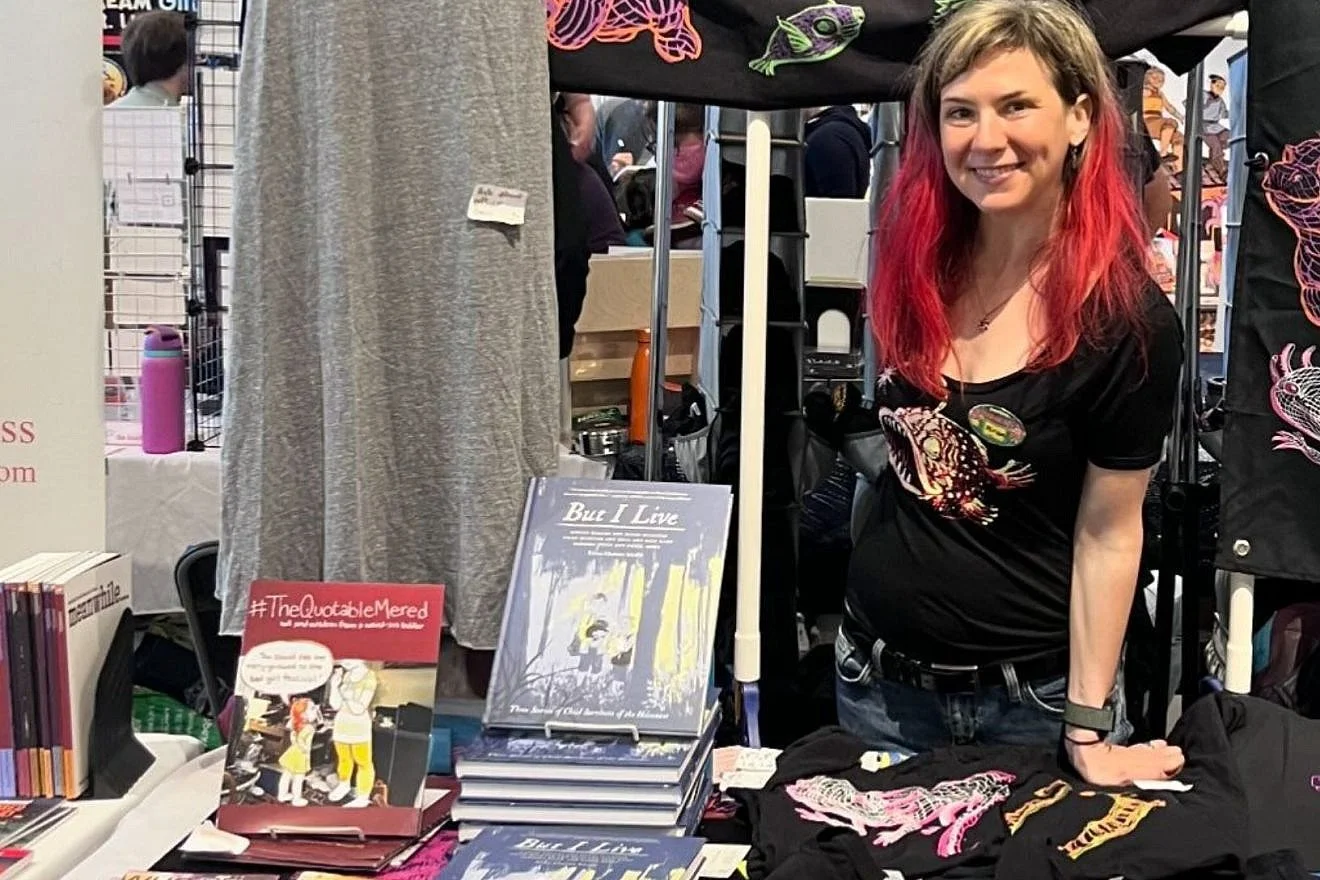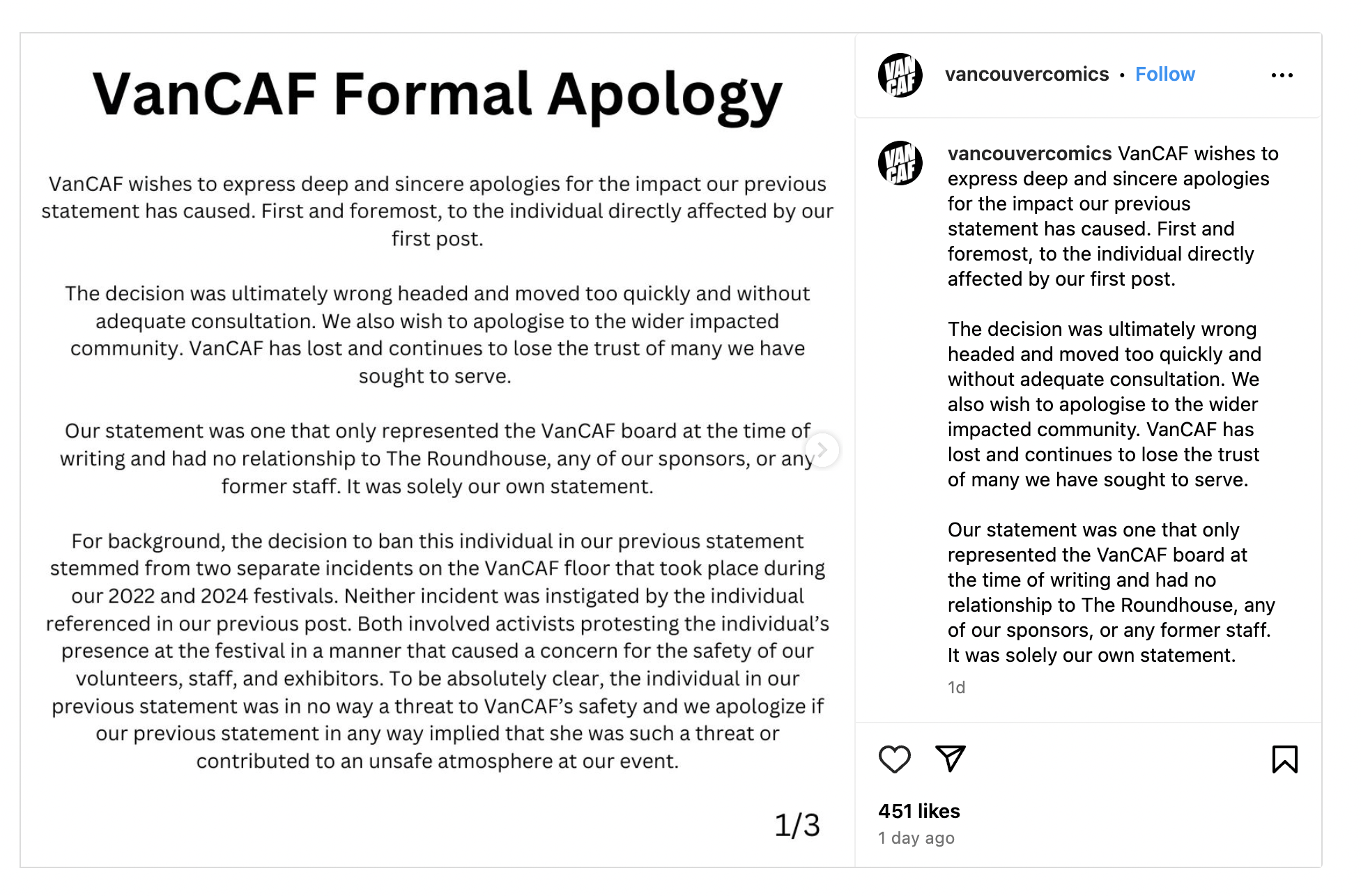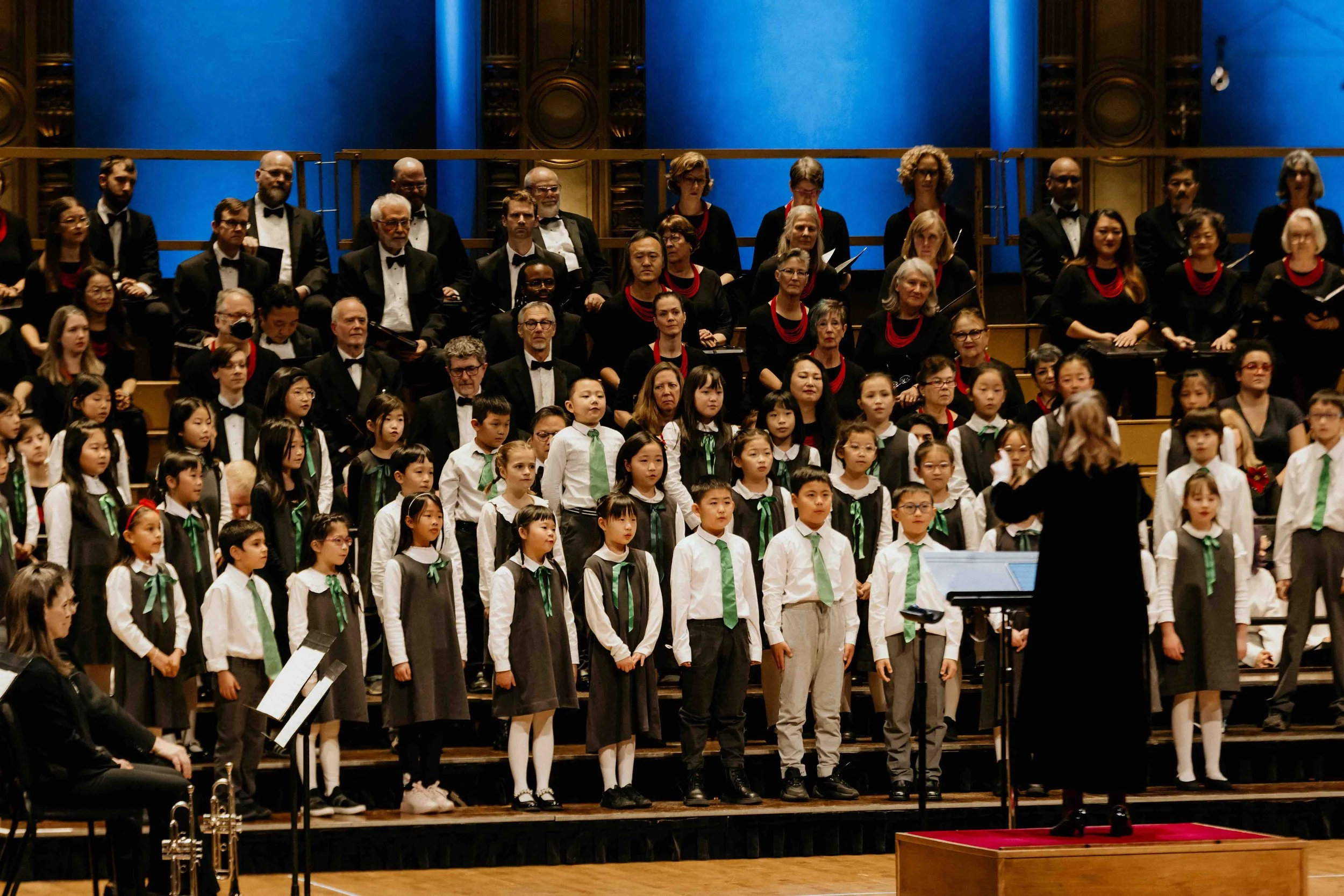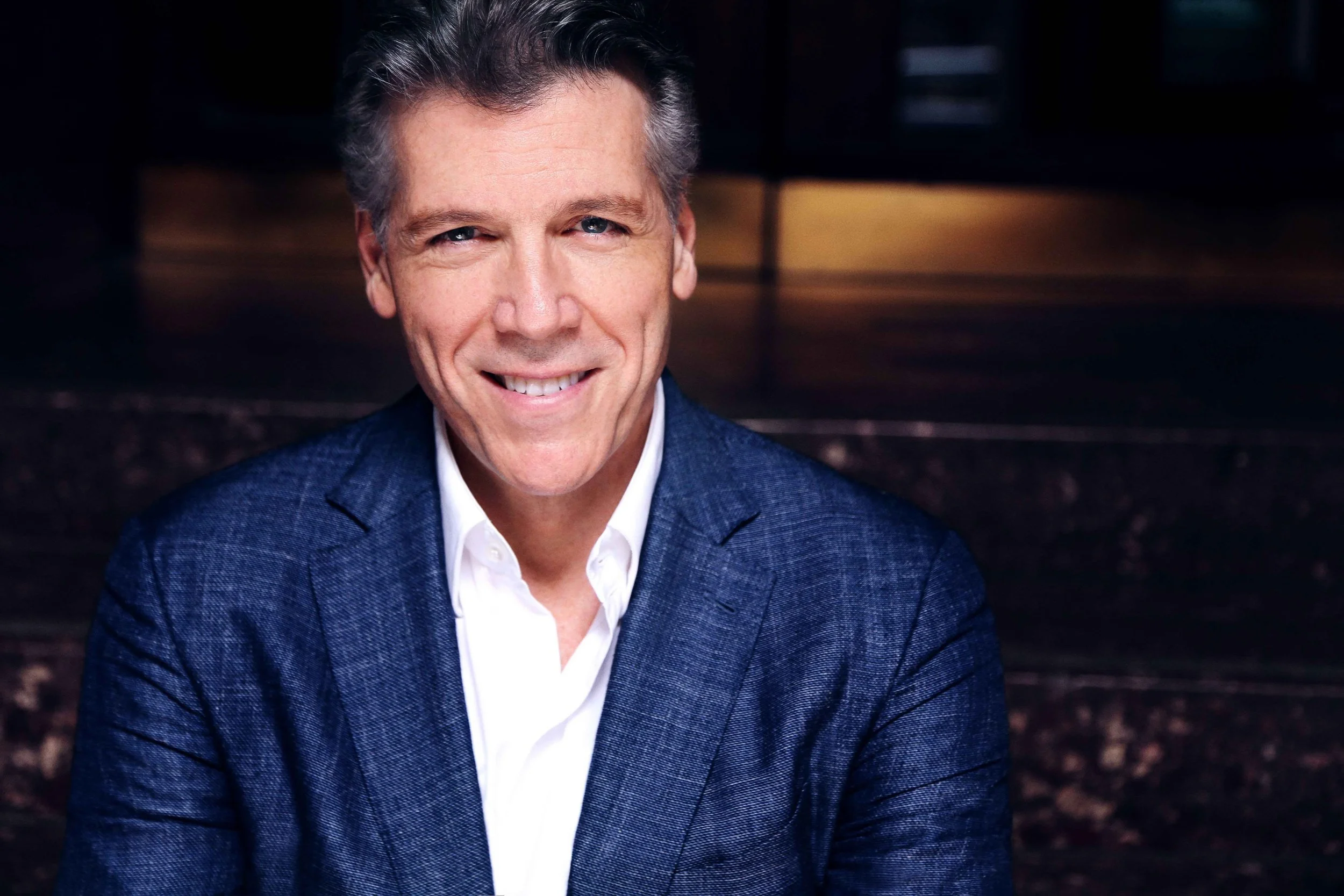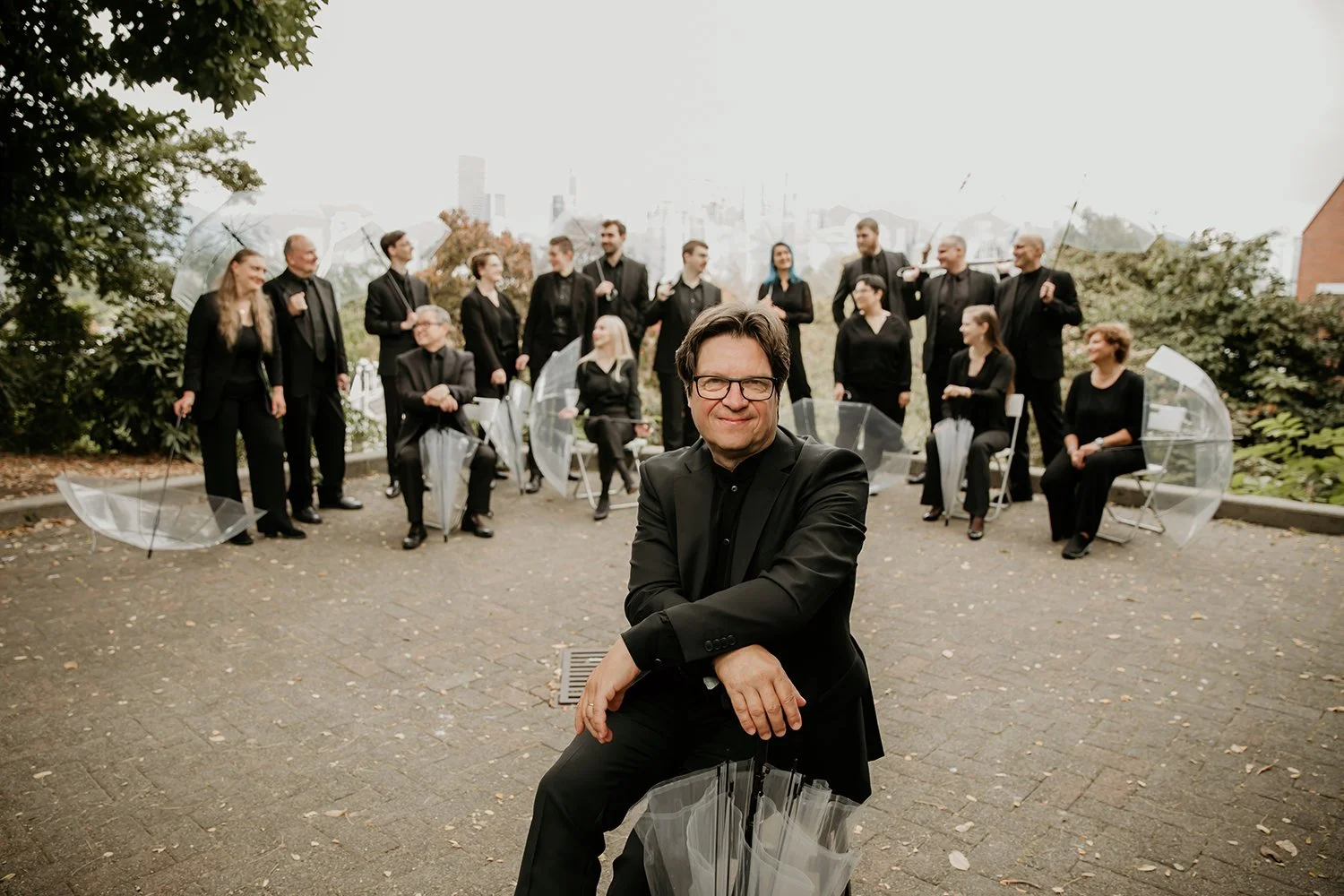Cartoonist Miriam Libicki receives formal apology from Vancouver Comic Arts Festival after protests led to ban
The Vancouver artist, who was banned after protesters disrupted the festival, is now using her art to raise funds for Palestinian and Israeli women peace activists
Miriam Libicki. From @MLibicki/Instagram
THE VANCOUVER COMIC ARTS FESTIVAL has issued a formal apology after banning Vancouver artist Miriam Libicki from its future events.
Following the incident, the American-Israeli graphic novelist is using her heightened profile to raise funds for The Mother’s Call, a collaboration of women peace advocates in Palestine and Israel.
Libicki, who was Vancouver Public Library’s 2017 writer in residence, is the creator of the 2008 autobiographical novel Jobnik!, which reflects on her service in the Israeli army during the Second Intifada; a series of graphic essays, Towards a Hot Jew, which explores her Jewish identity; and the 2022 book But I Live, for which she was one of three artists chosen to share the stories of four Holocaust survivors.
On May 25, without explicitly naming Libicki, the Vancouver Comic Arts Festival (VanCAF) posted a now-deleted “accountability statement” on Instagram that read, in part, “At this year’s 2024 Vancouver Comic Arts Festival, community members approached us to share important public safety concerns involving one of the exhibitors we allowed to participate in the festival….Upon examining these concerns and conducts, this exhibitor will not be permitted to return to the festival.” The statement went on to say that it was revising its code of conduct policy and would be “adhering strictly to the Palestinian Campaign for the Academic and Cultural Boycott of Israel (PACBI) guidelines”.
The festival’s subsequent lengthy formal apology, posted June 3 on its social channels and website, stated, in part: “VanCAF wishes to express deep and sincere apologies for the impact our previous statement has caused. First and foremost, to the individual directly affected by our first post. The decision was ultimately wrong headed and moved too quickly and without adequate consultation. We also wish to apologise [sic] to the wider impacted community. VanCAF has lost and continues to lose the trust of many we have sought to serve….To be absolutely clear, the individual in our previous statement was in no way a threat to VanCAF’s safety and we apologize if our previous statement in any way implied that she was such a threat or contributed to an unsafe atmosphere at our event.” The apology also noted that “the vast majority of individuals involved in the first statement have since independently resigned.”
In a phone call with Stir, Libicki explained that she had exhibited at every Vancouver Comic Arts Festival since 2012 until 2022, when two members of the public confronted festival volunteers about her inclusion. “There was no confrontation at my table, but they complained to the show in a very hostile and discomforting manner,” she recalled. “They were complaining that I was a Zionist and it was Zionist propaganda, and I shouldn’t be allowed to exhibit at the show.” Libicki said she was told that the pair would be banned from attending the festival in the future.
In 2023, Libicki said, she missed the initial call for applications, and was turned down for an exhibition table by organizers who said they needed to review the previous year’s incident. This year, Libicki said organizers initially refused her a table, but finally agreed that she could attend if she exhibited only But I Live. “I was okay with that because I do know that this year things are different,” she said.
According to Libicki, this year’s show went without incident until half an hour before its closing, when she was approached by two people who began asking her questions about her work and her background. “They had the briefest interaction with me at my table…and then they enacted basically the exact same scene [as 2022] to volunteers and VanCAF staff and Roundhouse staff,” she said. “It was not a confrontation with me.”
Libicki said that she had no contact with VanCAF before the organization posted its “accountability statement” days later. “They never told us formally that there was a complaint against me. They never told me that I was banned before that announcement went up. ”
Libicki said all her communications with VanCAF since May 25 have been through her lawyer: “When they took down the statement on Wednesday [May 29], that was after my lawyer sent them a letter. And when they put up the apology, they did run it by my lawyer first….The apology did not get any more personal to me than that.”
Miriam Libicki is selling watercolours from her 2013 series “THE LOVE SONG OF HIPPO AND CORONET” to raise funds for The Mother’s Call.
Libicki said she is now speaking out not just for herself, but to stand up for other individuals who may find themselves in similar crosshairs. “This could happen to anybody with some sort of identity that is politicized or politically marginalized,” she said. “It means that if somebody else decides your identity is a political problem, then we’re going to ban you instead of them. That could easily apply to, you know, a Palestinian person. It could have been a right-wing pro-Zionist activist who complained about a Palestinian person being there, and created a disturbance. Or, you know, famously in the U.S. and in our country, things like drag queen story hour—trans people and drag performers existing is a political problem for some people. So then they are called a safety hazard, when it's actually not them that is a safety hazard, it’s the people who decided that their identity is a political problem.”
Libicki said she has decided to use the attention the situation has brought her to raise money for peace activists in Israel and Palestine. She is selling a series of five watercolour artworks of seahorses, and will donate 100 percent of the proceeds to The Mothers’ Call, a grassroots collaboration between Women of The Sun in Palestine and Women Wage Peace in Israel.
“What I stand for is peace and justice, and that Israel and Palestine belongs to everyone who lives there, of all religions and backgrounds,” she said. “Maybe with all the added attention, maybe some of the pieces will sell, and I would then be able to send on the money, and it could be a good outcome.”
In addition to raising money for The Mothers’ Call, Libicki is hoping that other organizations can learn from what she went through. “I do feel like what happened at VanCAF is something that could be a warning to other arts festivals about not losing their heads when somebody who they might happen to politically agree with has a bullying campaign against them,” she said. “There was a campaign in the week between the festival and when they put out that statement, where they were just being dogpiled by certain people, who were not a lot of people, but were just very loud. And then it was the added temptation of the fact that many of their politics, the people on the board happened to agree with. They couldn’t see that this was bullying tactics, and that the people who were calling for them to do things that were wrong and unfair and illegal. I think that's something that can happen and possibly has and is happening to other arts festivals and nonprofits. And so they should look at VanCAF as an object lesson in what not to do and why not to do it.”
VanCAF had not responded to Stir by press time. We'll update the story as new information becomes available.
![]()



